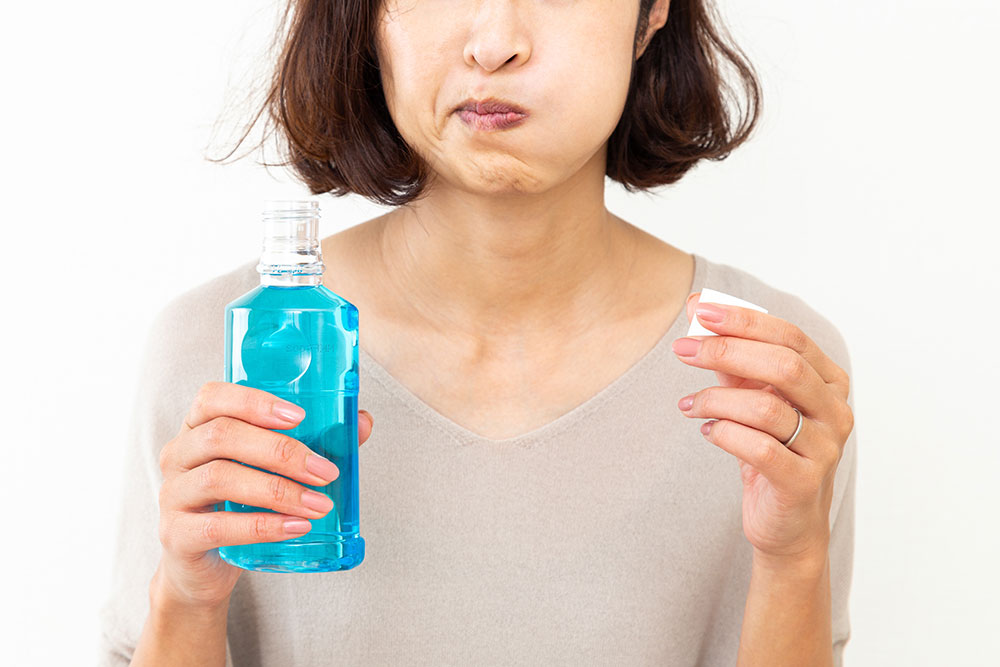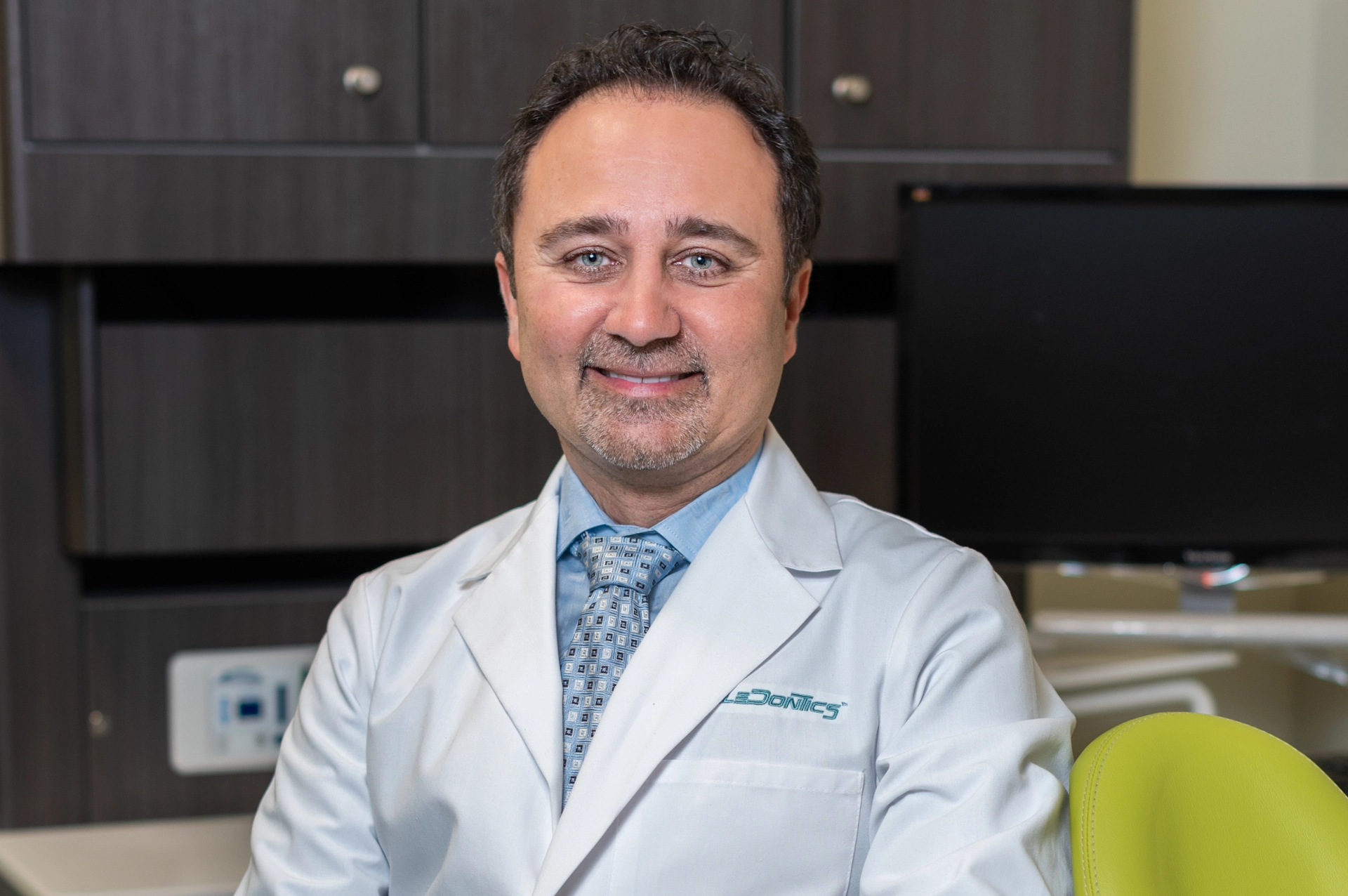
Just like we can’t simply say if food is good or bad for you without considering the type of food, the same applies to mouthwash. The key lies in its ingredients and whether it contains alcohol, antimicrobial agents, or whether it’s acidic or alkaline.
To be sure, there are many things we ingest that are more harmful than mouthwash. Right?
Traditionally, the scientific consensus has said “Yes”, mouthwash is not only relatively harmless, but also healthy. But new research indicates a possible connection between the prolonged use of some common over-the-counter mouthwashes containing alcohol or antimicrobials and serious health conditions like cancer, high blood pressure, and heart disease.
This, in turn, raises concerns about the safety of everyday oral care products and suggests a need for a closer look at their ingredients.
Here’s what you need to know about the potential dangers of mouthwash.
Is Mouthwash with Alcohol Bad?
In a word, yes, mouthwash with alcohol is bad for you, and it’s not because of the alcohol itself, per se, but what it does to the oral microbiome.
In case you need a refresher (pun intended), the oral microbiome is a collection of microorganisms including bacteria, viruses, and fungi that live in your mouth that plays an important role in your overall oral health.
“Wait!?” you might think. “Isn’t it good to kill these microorganisms?”. Not so fast. The presence of good bacteria in your mouth helps balance out bad bacteria. While alcohol and antiseptic mouthwashes kill bad bacteria, they kill good bacteria, too, and can seriously throw your oral microbiome out of whack.
New Research Links Mouthwash with Cancer
A recent study1 suggests that regular use of alcohol-based mouthwashes, especially those with antiseptic ingredients, may negatively impact the oral microbiome.
The research found increased levels of specific bacteria, Fusobacterium nucleatum and Streptococcus anginosus, after prolonged use of products like Listerine. These bacteria have been associated with esophageal and colorectal cancers.
So, does mouthwash cause cancer? According to the research presented, prolonged use of antiseptic alcohol-based mouthwashes can directly cause increased levels of bacteria that themselves can cause cancer.
Thankfully, avoiding these mouthwashes may reduce your risk factors for getting oral and colorectal cancer.
Is There Such a Thing as Safe & Effective Mouthwash?
Yes!
There are several options on the market, one of the most effective and safest of which is SuperMouth mouthwash, which has been developed with your optimal health in mind. SuperMouth mouthwash offers the kind of benefits you may associate most alcohol-based mouthwash with, plus:
- A Safe Alcohol-Free Formula: Unlike many conventional mouthwashes, it contains no alcohol, avoiding the negative impact on your oral microbiome and overall well-being.
- Prebiotic Support: Instead of harsh antimicrobials, SuperMouth mouthwash includes prebiotics that nourish beneficial bacteria, promoting a balanced oral environment.
- pH Balanced: Our formula maintains a neutral pH, supporting natural processes and avoiding disruptions to the oral ecosystem.
- Mineral & Vitamin Rich: With nano-hydroxyapatite and vitamins D3 and K2, it strengthens teeth and nourishes oral tissues for optimal health.
- No Artificial Ingredients: SuperMouth ditches artificial ingredients such as artificial colors, flavors, sweeteners or preservatives.
In Conclusion
In most cases, you should avoid alcohol-based mouthwash or antiseptic mouthwash. Choosing the right mouthwash also isn’t as simple as opting for an “alcohol-free” formulation, however, as many of these products still contain ingredients that kill good bacteria as well as bad bacteria, not to mention artificial coloring and other potentially dangerous chemicals.
So be sure to take a closer look at your next bottle of mouthwash before you buy!
If in doubt, choose SuperMouth mouthwash, which has been designed to nurture the oral microbiome, potentially contributing to the prevention of oral diseases* and supporting systemic health.
Need more reason to give it a go? It’s available in a variety of compelling flavors, ranging from super mint to super chocolate, super strawberry, and super vanilla.
Sources:
1https://www.microbiologyresearch.org/content/journal/jmm/10.1099/jmm.0.001830

